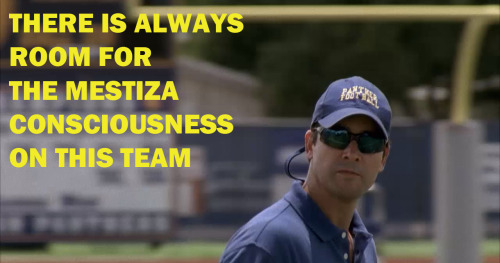Familiar Symbols, Embedded Assumptions, and Illogical Enthymemes
Some of the material I have posted on memes previously has found its way into a Prezi I put together to teach the rhetorical analysis of visual rhetoric.
Of the more salient points I make during the presentation have to do with how potentially prejudicial assumptions about race, class, and gender transmit through images juxtaposed with seemingly logical arguments that are little more than enthymemes with embedded ideological assumptions communicated in so-called established "universal truth," which results in many times offensive punchline arguments.
For examples of the more offensive and prejudicial messages transmitted through the visual images and discourse, see the Don Draper and Mexico's national sport memes.
I think the next stage in the revision of this Prezi would either include the transfer to video format with actual narration, or at the very least the inclusion of more text to further analyze the images for an audience not listening to the actual presentation.
This online writing environment digitally archives the embodied rhetoric, issues and projects that relate to me as Associate Professor at Santa Clara University and Bread Loaf School of English faculty. E-mail me at: cnmedina AT SCU DOT edu.
Showing posts with label internet memes. Show all posts
Showing posts with label internet memes. Show all posts
Thursday, January 24, 2013
Tuesday, February 14, 2012
Internet Memes Representing the Public Discourse
The Six Part Syllogisms of Spatial-Visual Rhetoric
In addition to the Academic Coach Taylor Tumblir I've tweeted for its hilarious mash-up of Football coach and Feminist theory, these six paneled What People Think I Do memes have been circulating with images of everything from Director to Stay at Home mother.
The ones below came to me through go old Facebook, and the most salient feature about the comments posted by the people posting these plays on stereotypes, assumptions and exotification/over-romanticization of different professions is that people tend to comment "So true," or "If you are such and such, then you'll totally get this."

I suggested there's a syllogistic aspect of the arguments built through the series of point-of-views, and there's a definite recognition of public discourse in terms of what others are supposedly "thinking" or what we imagine they are "thinking." There's certainly some truth to all of these and the numerous and seemingly un-ending variations hint at the acceptance of this kind of literacy practice, possibly for the immediacy and expectation of narrative resulting in a punchline.


In addition to the Academic Coach Taylor Tumblir I've tweeted for its hilarious mash-up of Football coach and Feminist theory, these six paneled What People Think I Do memes have been circulating with images of everything from Director to Stay at Home mother.
The ones below came to me through go old Facebook, and the most salient feature about the comments posted by the people posting these plays on stereotypes, assumptions and exotification/over-romanticization of different professions is that people tend to comment "So true," or "If you are such and such, then you'll totally get this."
I suggested there's a syllogistic aspect of the arguments built through the series of point-of-views, and there's a definite recognition of public discourse in terms of what others are supposedly "thinking" or what we imagine they are "thinking." There's certainly some truth to all of these and the numerous and seemingly un-ending variations hint at the acceptance of this kind of literacy practice, possibly for the immediacy and expectation of narrative resulting in a punchline.
Update:
I was listening to a Berkman Center podcast from the Rolling on the Floor Laughing Conference (I might have messed up the title) at MIT. The authors of the podcast asked the all-important question of "What is a meme?"
Attendees hemmed and hawed when answering, but included:
- "powered by people sharing it,"
- "shareable pop culture content,"
- "you can't have a meme if no one else relates to it,"
- "a joke that catches on,"
- "something funny that's ridiculous,"
- "people's boredom powers a meme,"
- "witty statements over an image,"
- "reinacted and recreated by millions,"
- "in order to be recognized and adopted, there needs to be a recognizable portion of that."
Dawkins: Greek word for something imitated (mimesis, if I'm correct); ideas in the form of memes replicate the way genes do, evolutionarily. In order for something to become a meme, it must transform as it moves from person to person (http://knowyourmeme.com/).
As the six-paneled memes above address, the political subject matter of memes can be empowering because they can be anonymous, but the spread of these memes voice the growing resentment.
Subscribe to:
Posts (Atom)







